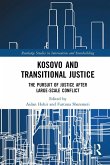In shaping the institutions of a new country, what interventions from international actors lead to success and failure? Elton Skendaj's investigation into Kosovo, based on national survey data, interviews, and focus groups conducted over ten months of fieldwork, leads to some surprising answers. Creating Kosovo highlights efforts to build the police force, the central government, courts, and a customs service.
Skendaj finds that central administration and the courts, which had been developed under local authority, succumbed to cronyism and corruption, challenging the premise that local "ownership" leads to more effective state bureaucracies. The police force and customs service, directly managed by international actors, were held to a meritocratic standard, fulfilling their missions and winning public respect. On the other hand, local participation and contestation supported democratic institutions. When international actors supported the demobilization of popular movements, they undermined the ability of the public to hold elected officials accountable.
Skendaj finds that central administration and the courts, which had been developed under local authority, succumbed to cronyism and corruption, challenging the premise that local "ownership" leads to more effective state bureaucracies. The police force and customs service, directly managed by international actors, were held to a meritocratic standard, fulfilling their missions and winning public respect. On the other hand, local participation and contestation supported democratic institutions. When international actors supported the demobilization of popular movements, they undermined the ability of the public to hold elected officials accountable.
Dieser Download kann aus rechtlichen Gründen nur mit Rechnungsadresse in A, D ausgeliefert werden.









